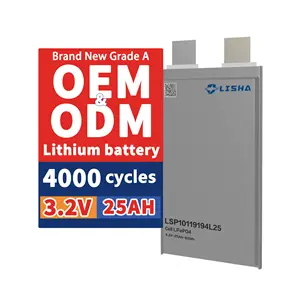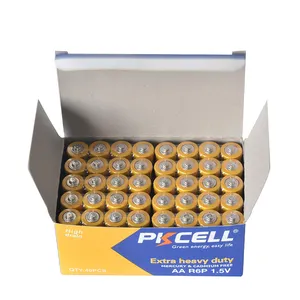
Lisha High Quality 25ah Rechargeable Electric Car Battery Lithium Ion Batteries Pouch Cell Lithium Polymer LFP Cells 3.2v 25Ah


Linde Nichiyu Pzs Clark Fork Lift Battery For Forklift Electric 80v 36v 48v Forklift Battery 48v 36v 24v 80v 600ah
















Dry cell batteries are a ubiquitous source of power in today's electronic-driven world. Unlike their wet cell counterparts, dry cell batteries contain a paste that renders them spill-proof, making them a versatile and safer option for powering a myriad of devices. This category encompasses a variety of batteries, including the traditional Leclanche cell, modern alkaline batteries, and more specialized forms like the 12 volt dry cell battery and dry cell battery for inverter applications.
The range of dry cell and battery types is extensive, catering to various applications from small handheld devices to larger automotive needs. For instance, automotive dry cell batteries are designed to meet the rigorous demands of vehicle operation, while dry cell auto batteries are often sought after for their longevity and reliability. On the other hand, dry cell car battery options are tailored for personal vehicle use, providing dependable starting power.
Dry cell batteries offer several features that contribute to their popularity. Their compact size ensures portability, while their design is optimized for a snug fit in a variety of devices. Additionally, these batteries are known for their low self-discharge rates, allowing them to maintain charge over extended periods of inactivity, which is particularly beneficial for applications like 12v battery dry cell configurations in emergency equipment or backup power systems.
The materials used in dry cell batteries are chosen for their energy efficiency and capacity to be more environmentally friendly. Many modern dry cells are designed with materials that are biodegradable, reducing their environmental footprint. The construction of a dry Leclanche cell, for example, involves zinc and manganese dioxide, which are less harmful to the environment compared to other battery chemistries.
Safety is paramount when it comes to battery production and usage. Dry cell batteries adhere to strict quality control measures and comply with relevant safety guidelines. This ensures that they are reliable and safe for use in various devices without the risk of leakage or hazardous incidents. Furthermore, the dry cell battery charger is designed to complement these safety features, providing a secure method of recharging where applicable.
Selecting the appropriate dry cell battery involves considering the device's power requirements and the battery's voltage and capacity. Whether it's for a small electronic gadget or a large inverter system, it's crucial to match the battery to the device's specifications to ensure optimal performance. While exploring options, it's beneficial to consider the intended use, such as whether a dry cell battery charger is needed for rechargeable types or if a single-use battery is more appropriate.